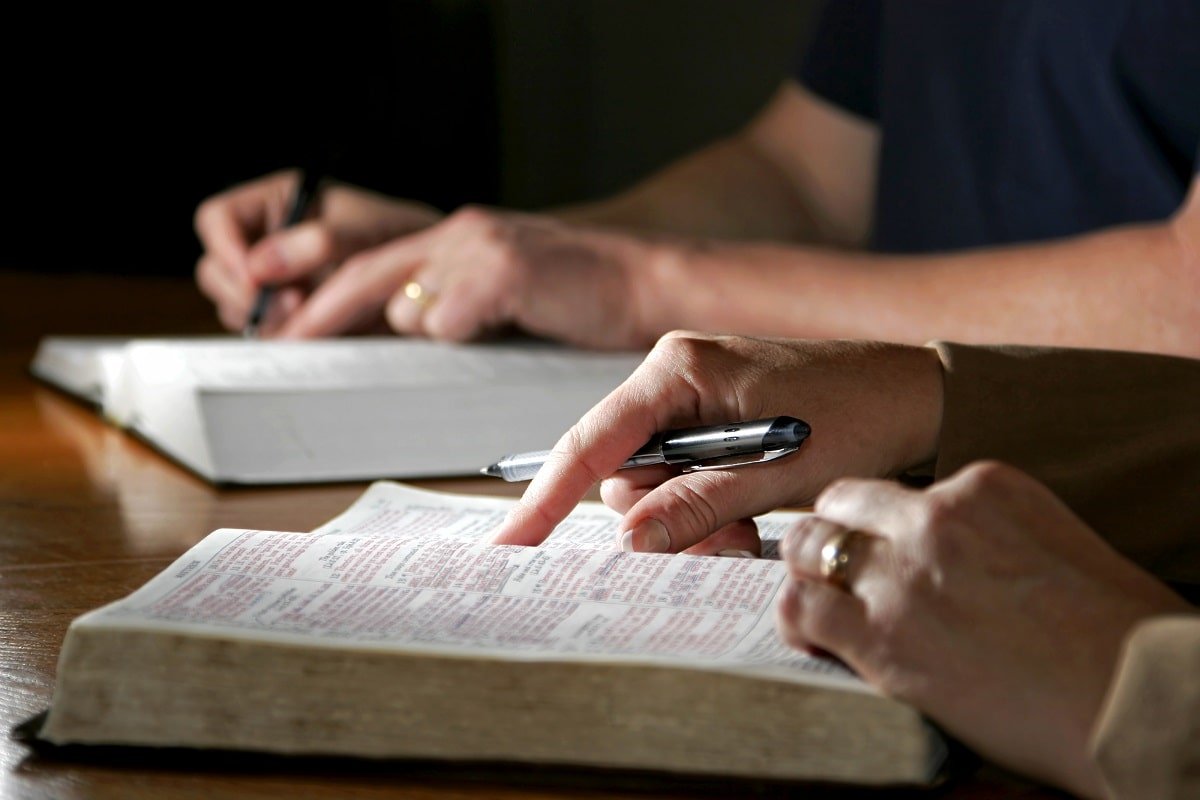May 5, 2022
What Is Lectio Divina?
What Is Lectio Divina?

“The Bible is not only written about us but to us,” Eugene Peterson writes in the introduction to The Message. “In these pages we become insiders to a conversation in which God uses words to form and bless us, to teach and guide us, to forgive and save us.”
This is not a new idea from Eugene, but rather his expression of the ancient Christian understanding of how we encounter God through Scripture. The spiritual discipline of lectio divina, also known as holy/sacred/divine reading, has been a principal means for generations of Christians to experience this divine encounter through the pages of the Bible. As you read a passage of Scripture you follow these six steps:
• STOP, pausing for a moment and preparing to encounter God (silencio)
• READ, doing a first reading and then making observations of the text (lectio)
• PONDER, reflecting on what you observed in your reading of the text and in yourself as you read (meditatio)
• PRAY, engaging in conversation with God inspired by the text (oratio)
• REFLECT, taking note of what this time with God has brought to the surface (contemplatio)
• LIVE, considering how this time with God translates into your life with God (incarnatio)
Eugene continues on about the importance of applying lectio divina to our regular Bible reading:
“Reading the Bible, if we do not do it rightly, can get us into a lot of trouble. We pick up a Bible and find that we have God’s word in our hands, our hands. We can now handle it. It is easy enough to suppose that we are in control of it, that we can use it, that we are in charge of applying it wherever, whenever, and to whomever we wish without regard to appropriateness or conditions.
“Those who don’t know the conditions implicit in the technology of the Bible are dangerous to themselves and others. And so, as we hand out Bibles and urge people to read them, it is imperative that we also say, caveat lector, let the reader beware.
“The Word of God is not my possession. The words printed on the pages of my Bible give witness to the living and active revelation of the God of creation and salvation, the God of love who became the Word made flesh in Jesus, and I had better not forget it. If in my Bible reading I lose touch with this livingness, if I fail to listen to this living Jesus, submit to this sovereignty, and respond to this love, I become arrogant in my knowing and impersonal in my behavior. An enormous amount of damage is done in the name of Christian living by bad Bible reading. Caveat lector, let the reader beware.
“Lectio divina trains us in the discipline of reading Scripture rightly. At every turn of the page it poses Jesus’ question to us: ‘How do you read?’
“Lectio divina is the deliberate and intentional practice of making the transition from a kind of reading that treats and handles, however reverently, Jesus dead to listening to, accompanying, and following Jesus alive. A word written is less than a word spoken—and sometimes not even the same thing at all. Which, of course, is why many of us prefer words written to words spoken. It is simpler, we are more in control, we don’t have to deal with the complexities of people. If we don’t like what we are reading we can shut the book and pick up another—or go shopping, or take a walk, or spend an hour or so in the garden.
“But we do not read the Bible in order to reduce our lives to what is convenient to us or manageable by us—we want to get in on the great invisibles of the Trinity, the soaring adorations of the angels, the quirky cragginess of the prophets, and . . . Jesus.
Lectio divina is a way of life that develops ‘according to the Scriptures.’ It is not just a skill that we exercise when we have a Bible open before us but a life congruent with the Word made flesh to which the Scriptures give witness. The Letter to the Hebrews tells us that the word of God originated when ‘going through a long line of prophets, God [spoke to] our ancestors in different ways for centuries. Recently he spoke to us directly through his Son. . . . It’s crucial that we keep a firm grip on what we’ve heard’ (Hebrews 1:1-2; 2:1). These are spoken words delivered to us by ‘pioneers who blazed the way’ (Hebrews 12:1) and now rewritten in our Holy Scriptures. It is the task of lectio divina to get those words heard and listened to, words written in ink now rewritten in blood.”





